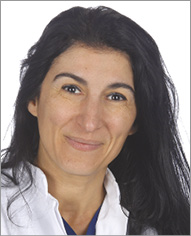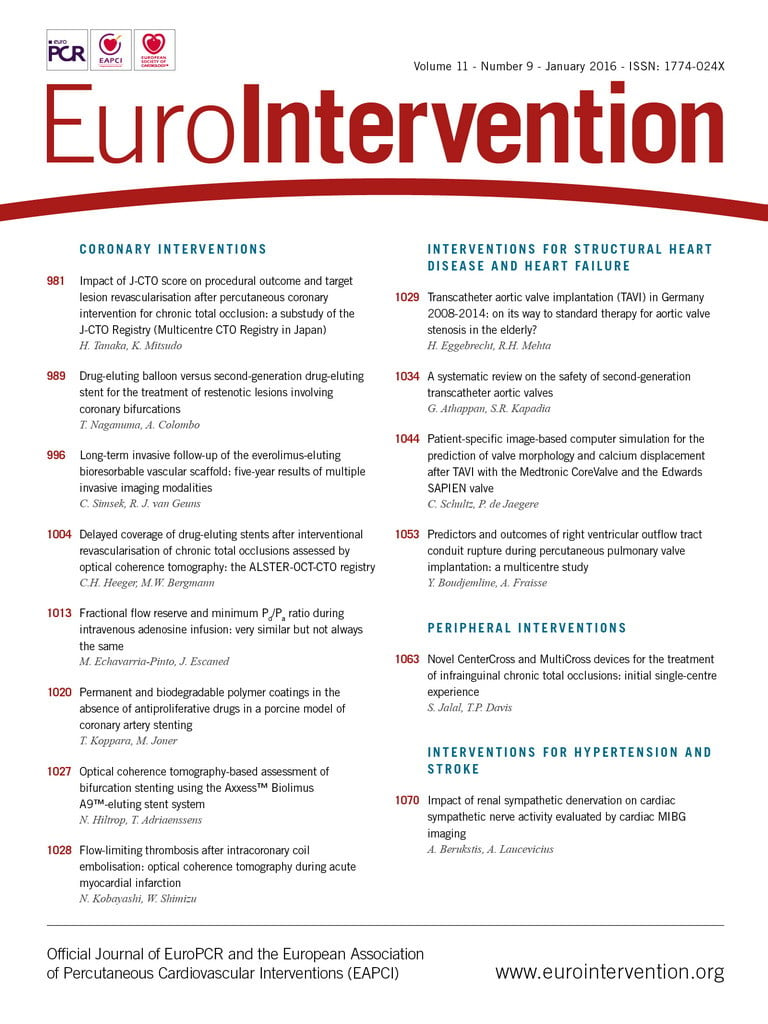NEWS
■ Fellows Course: 9-11 June 2016 at the Heart House, Sophia Antipolis, France. This course is designed to aid the continued development of medical doctors who have started or recently completed a programme of training in interventional cardiology in the core subjects of the syllabus.
■ The EAPCI membership changes its name to EAPCI Regular but the benefits remain the same for 2016. Log in on your MyESC account, discover the new platform and update your profile.
■ The South African Heart Association will officially join the Stent for Life initiative as an affiliated organisation in February 2016.
EAPCI focus on the WEAPCI survey on radiation exposure and regulations in European catheterisation laboratories
Julinda Mehilli, Chairwoman of the EAPCI Women Committee

Julinda Mehilli, Chairwoman of the EAPCI Women Committee
Recently, the EAPCI has promoted a number of initiatives and surveys in order to assess and improve daily practices in interventional cardiology. The persistent low proportion of women among interventional cardiologists, despite an increasing number of women among medicine students, led to the creation of a Women Committee within the EAPCI (WEAPCI) in order to identify determinants of the current gender-related disparities at the university-to-work transition and to develop strategies for attaining gender equality in interventional cardiology.
A previous survey conducted by the WEAPCI a year ago showed that radiation exposure is one of the most important reasons hindering women from choosing interventional cardiology as a career, and catheterisation laboratory directors from choosing women for a permanent position or even for a fellowship. The “risk of pregnancy” is particularly feared.
However, little is known about the radiation-reducing strategies across Europe. Fluoroscopy machines have evolved, and a wide range of protective tools is now available. The selection of the protective tools is left to the discretion of the catheterisation laboratories, which is a source of inhomogeneity. On the other hand, radiation awareness programmes are now being conducted in the interventional cardiology communities of most countries. These programmes can be optional or mandatory, and their timing (during the fellowship or after) also varies. A description of these tools and strategies across Europe has never been made, and an assessment of the level of personal awareness regarding radiation is needed.
Besides, laws regarding the maximum allowed radiation doses vary widely, and the specificities of different countries and laboratories have never been assessed. Even the tools used for radiation measurement can be different. Pregnancy is a great example of a situation where radiation exposure is highly regulated but in an inhomogeneous way. In many European countries, pregnant workers can continue to work with radiation limits of 1 mSv (fetal dose during full pregnancy), while doses of up to 5 mSv, measured by a waist dosimeter, are allowed in the USA. A global picture of the differences in regulations and measurement tools across European countries is lacking.
This survey aims therefore to provide a global updated assessment of the current regulations and practices regarding radiation protection in different European catheterisation laboratories. It will assess the radiation-reducing strategies, including awareness programmes and protection tools, used in each participating laboratory, as well as the radiation measurement tools used and the regulations applied regarding the maximal accepted radiation dose, whether during or outside pregnancy. It will also assess the gender ratio of both catheterisation laboratory directors, and medical and paramedical personnel working in these laboratories, according to the proportion of coronary/peripheral/structural and electrophysiological unit (EPU) procedures performed.

